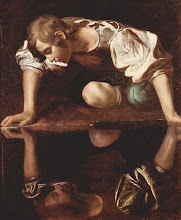And when Socrates saw him, he said: “Well, my good man, you know about these things; what must I do?” “Nothing,” he replied, “except drink the poison and walk about till your legs feel heavy; then lie down, and the poison will take effect of itself.”(Plato Phaedo, translated by Harold North Fowler )
At the same time he held out the cup to Socrates. He took it, and very gently, Echecrates, without trembling or changing color or expression, but looking up at the man with wide open eyes, as was his custom, said: “What do you say about pouring a libation to some deity from this cup? May I, or not?” “Socrates,” said he, “we prepare only as much as we think is enough.” “I understand,” said Socrates; “but I may and must pray to the gods that my departure hence be a fortunate one; so I offer this prayer, and may it be granted.” With these words he raised the cup to his lips and very cheerfully and quietly drained it.
~~~
He walked about and, when he said his legs were heavy, lay down on his back, for such was the advice of the attendant. The man who had administered the poison laid his hands on him and after a while examined his feet and legs, then pinched his foot hard and asked if he felt it. He said “No”; then after that, his thighs; and passing upwards in this way he showed us that he was growing cold and rigid. And again he touched him and said that when it reached his heart, he would be gone. The chill had now reached the region about the groin, and uncovering his face, which had been covered, he said—and these were his last words—“Crito, we owe a cock to Aesculapius. Pay it and do not neglect it.” “That,” said Crito, “shall be done; but see if you have anything else to say.” To this question he made no reply, but after a little while he moved; the attendant uncovered him; his eyes were fixed. And Crito when he saw it, closed his mouth and eyes.
Such was the end, Echecrates, of our friend, who was, as we may say, of all those of his time whom we have known, the best and wisest and most righteous man.
(Although Plato doesn’t actually mention hemlock, just calling it φάρμακον (drug, poison, medicine), we do know from elsewhere that hemlock was used to administer the death penalty in Athens.)
House’s patient, on the other hand, suffered from a seizure, bleeding eyes, vomiting, a rash, heart and kidney problems. It was long drawn out and painful (but not, thanks to modern medicine, fatal), not like Plato's description of Socrates’s gentle death at all.
The difference between Plato’s account and more modern accounts of hemlock poisoning have led to charges that Plato falsified his description to give Socrates a more fitting, philosophical death. It turns out, however, that there are two different, related, plants called hemlock: poison hemlock (conium maculatum) and water hemlock (cicuta virosa), plus a non-poisonous tree called hemlock because the crushed leaves smell similar to poison hemlock. The description of Socrates’s death fits poison hemlock, as discussed in Enid Bloch’s article: Hemlock Poisoning and the Death of Socrates: Did Plato Tell the Truth?
Most modern descriptions of hemlock poisoning, on the other hand, are based on water hemlock, a small amount of which House’s patient had eaten, which in the final solution exacerbated problems he’d laid up for himself by abusing steroids. Polite Dissent discusses the medical aspects of this episode of House.







3 comments:
Reaction seems to vary a lot between people too. There was a case in Scotland early in the 1900s which precisely matched Socrates' symptoms, except the muscles went rigid. This fellow's own children had made his lunch sandwiches and very tragically mistook hemlock for wild parsley.
It seems certain to me that whatever hemlock concoction was used by the Greeks, it must have been an easy way out, because it was so popular with old men who wanted to exit.
Are you thinking of the 1845 case of Duncan Gow which Enid Bloch mentions?
Indeed I am. Apologies, I was only out on my dating by 60 years.
Post a Comment